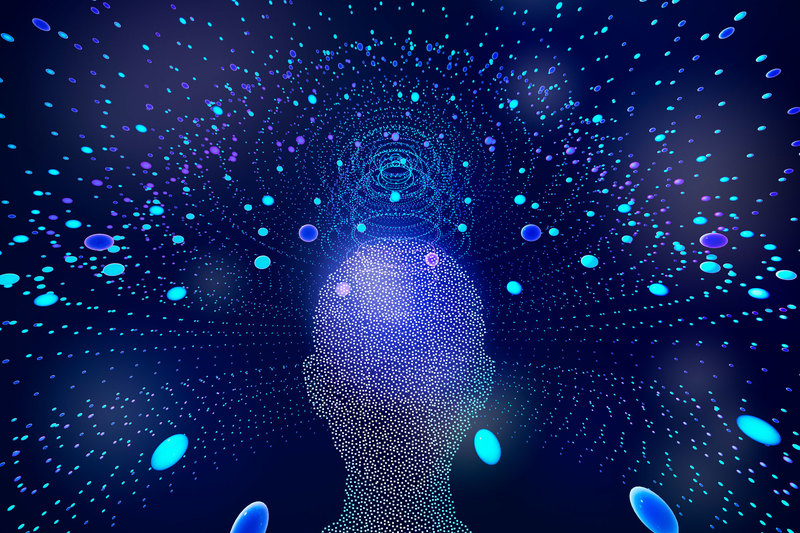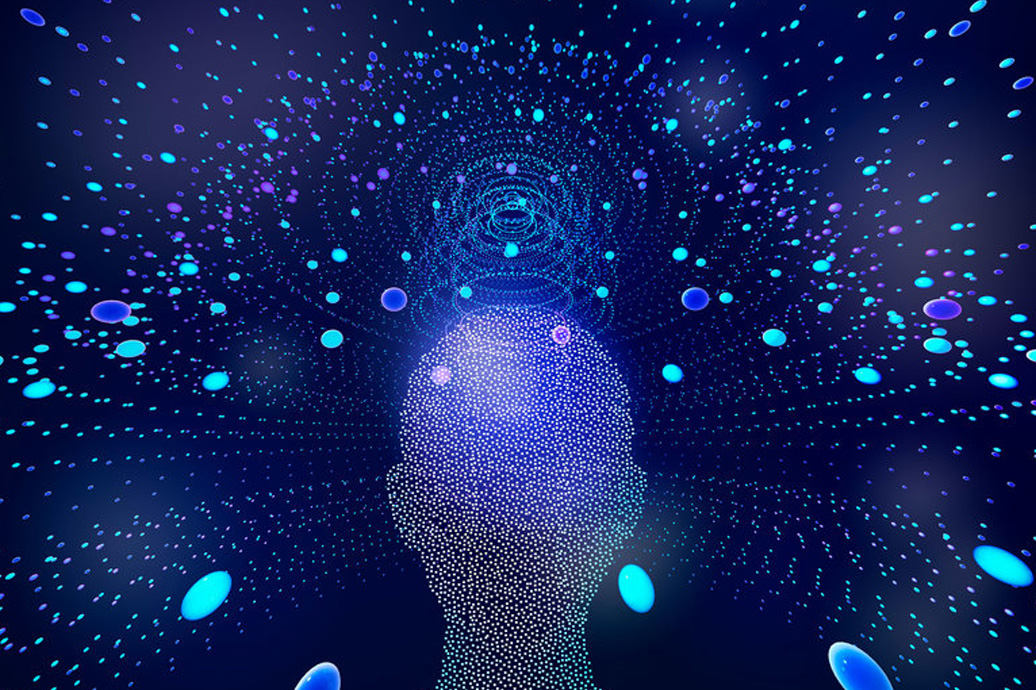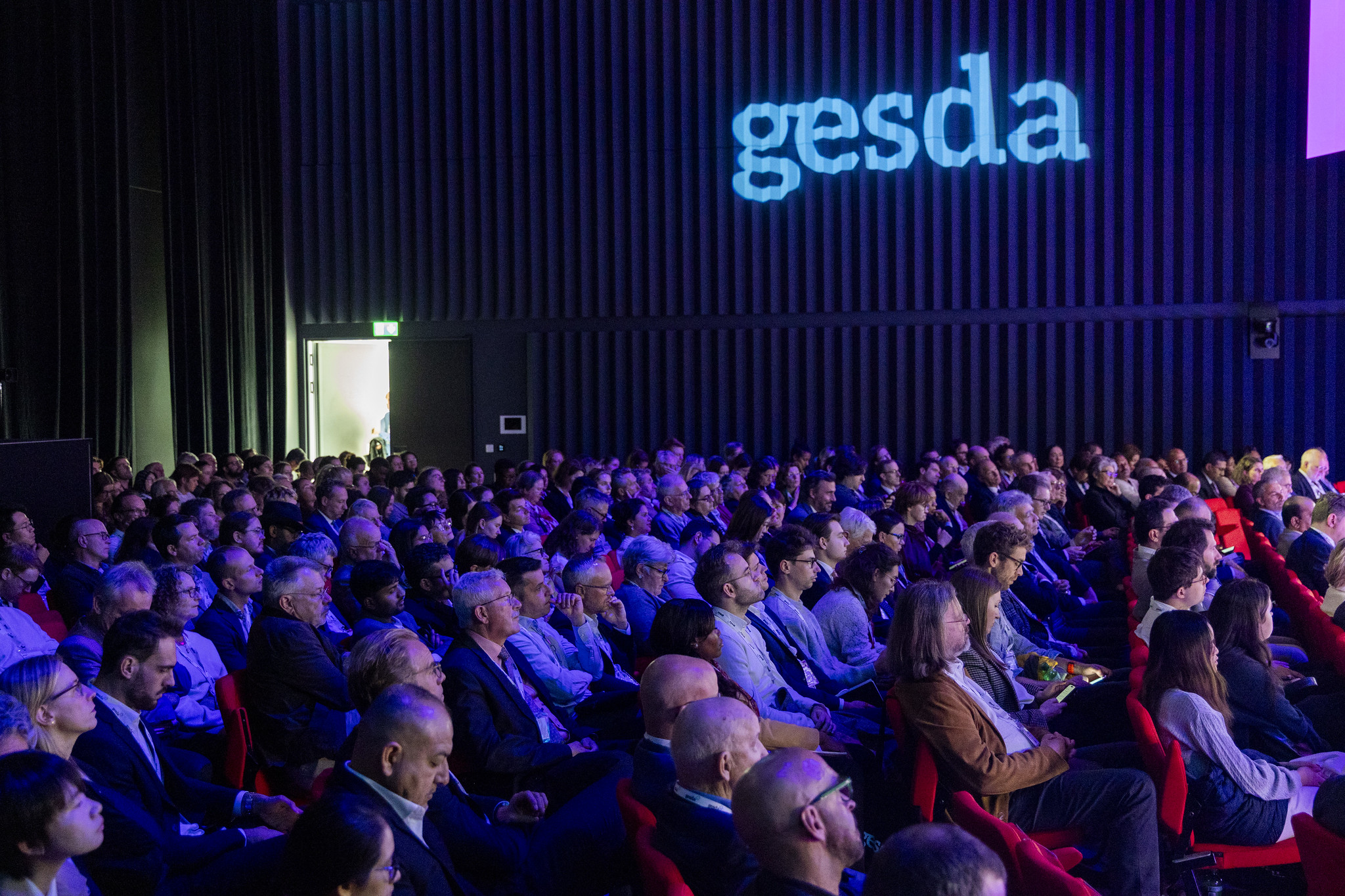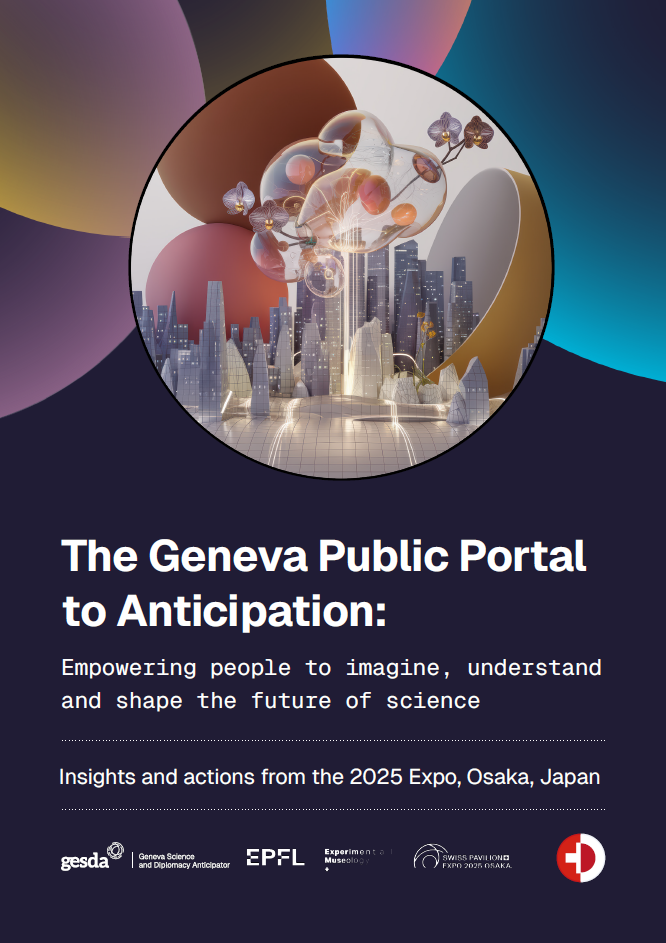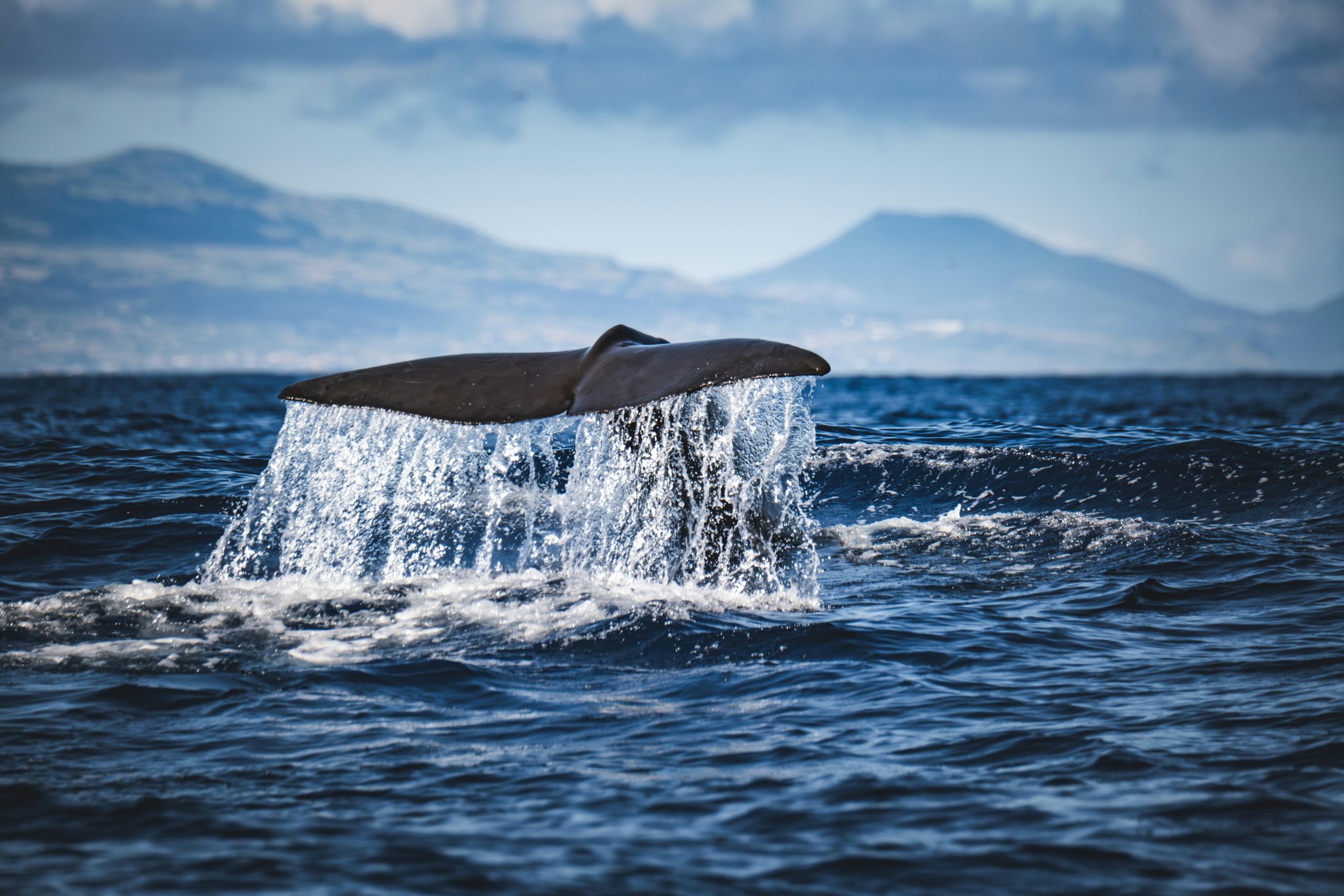The original article is available on the website of the University of Cape Town.
Kicking off a four-part series themed “Using the science of the future to shape your present” on Sunday, 11 July, University of Cape Town (UCT) Vice-Chancellor (VC) Professor Mamokgethi Phakeng facilitated a discussion around the quantum revolution and advanced artificial intelligence (AI) with Dr Divine Fuh and Professor Francesco Petruccione.
The online science series, which takes place over the course of four weeks in July, is hosted in conjunction with Switzerland-based ‘think and do tank’ Geneva Science and Diplomacy Anticipator (GESDA). The partnership is aimed at creating a participation initiative through critical and thought-provoking conversations to help drive UCT’s vision of producing future leaders who are able to tackle social injustice.
GESDA looks to anticipate, accelerate and translate the use of emerging science-driven topics. Using, among other tools, its Science Breakthrough Radar®, the body aims to ensure that predictive talent advances can be harnessed to improve well-being and promote inclusive development.
With the Sunday sessions, both UCT and GESDA seek to bridge the understanding of how science might shape the future, as well as how these predicted futures can be used to shape the present while ensuring that decisions and discussions include voices of the African youth.
“Oftentimes, the voices of the African youth [are] forgotten,” noted Professor Phakeng. “We have to grab this moment and invite the African youth to come on board to shape the future to ensure that we start working now to mitigate both emerging and longstanding indignities and inequalities.
“By bringing diverse voices and ideas, we can ensure we get the best thinking from every part of our society and corner of the world. We need your perspectives in these dialogues and debates. It is a matter of intergenerational justice – young people will inherit the future and they must therefore be involved in shaping how science should be used to affect it.”
The quantum revolution and advanced AI
As the information revolution has transformed the ways in which we live and work, our lives and our understanding of our shared environment have become intricately intertwined with the flow of data. With advanced AI and quantum computing, however, future impacts will be even more profound.
Professor Petruccione, who is a global expert on quantum technology, a contributor to GESDA and the founder of the largest quantum technology research group in South Africa, elucidated exactly how these technologies are changing our present and shaping our future.
“Quantum computing is a completely different paradigm of computing that is based on the laws of quantum physics. It uses all of these crazy – some call them spooky – properties as a resource to speed up calculations of certain problems,” he said.
“There are many examples where quantum technology will impact our existence substantially. Specifically, at the intersection between machine learning and quantum technology is quantum machine learning. This brings together the two worlds of artificial intelligence and quantum technology.”
One area in which this could have a massive impact is energy production, he noted. For example, using a model similar to photosynthesis to extract solar energy. “We are facing big energy challenges in South Africa and we know that one possible solution – and probably the best – is the use of renewable energies.
“We know that plants can do this very well and there is strong evidence that plants use quantum effects to be efficient in converting solar energy into the energy that they need to grow. We can learn from these effects to produce better artificial photosynthesis and produce power,” he explained.
Interdisciplinary technological advancement
Dr Fuh, who is a social anthropologist and the director of the Institute for Humanities in Africa at UCT, spoke to the various ethical and people-centric challenges that these leaps in technology present. In this vein, he highlighted the importance of interdisciplinary work and collaboration to ensure the best outcomes.
“We cannot produce technology without looking at the ways in which that technology will locate itself in the lives of people. We have seen that, despite the best intentions to create only positives in society, over time they can create all sorts of horrible consequences,” he said.
In addition to mapping the potential positive and negative effects of the technologies that are produced, Fuh pointed out that it is important to focus on who is producing the technology and the spaces in which it is being produced.
“We invest a lot in the humanities in trying to understand who these people are and the kind of ideas that shape the work that they do, and, in turn, the kinds of technology that is being produced. This helps to ensure that when these technologies are put into practice, they are put to good use and they are ethical,” he added.
Inviting the youth to come on board and explore these issues through interrogating the technology, Fuh noted, provides an opportunity for Africa to take advantage of the quantum revolution to solve the problems we are facing as a continent.
“We need to invest in asking and explaining, and we need lots of young people to do that. I think that’s what’s going to change the key infrastructure for the future – that we have young people who are asking questions that make our experiences intelligible,” he said.
This is especially pertinent as it relates to industries and sectors in which machines and artificial intelligence are predicted to replace human employees. For example, healthcare.
“What becomes of care? What becomes of the human aspects? Going to the hospital is not just about being treated, but about having human touch to help with your healing. So, what happens when there is just a machine treating you and you cannot get a hug?
“These are core questions we need to ask and why we are finding that there needs to be deep collaboration between the humanities, the natural sciences and technology,” he explained.
The next Sunday session is scheduled for 17 July, with a discussion on human augmentation. Phakeng encourages all youth to watch the upcoming webinars to help them think about how they can use any of the future technologies spoken about in the series to help them shape the present.
Young people joining the sessions stand a chance to win an all-expenses paid trip to attend the 2022 Geneva Science and Diplomacy Anticipation Summit from 12 to 14 October. Submission requirements, deadlines and other details will be announced on 1 August 2022, after the fourth and final session.
Read more about the competition.
Read the VC Desk.
The image is licensed under a Creative Commons Attribution-NoDerivatives 4.0 International License.



